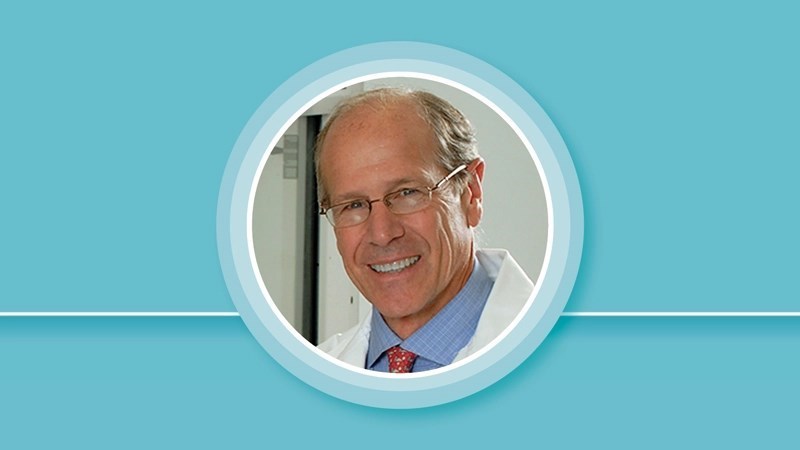Diversity, equity, and inclusion (DEI) are important principles that all institutions should strive to incorporate. Achieving DEI not only benefits physicians themselves, but also the patients to whom they provide care. Incorporating DEI principles at the individual and systems level may even improve clinical outcomes.1 Although significant progress has been made to increase DEI in surgery, much still can be accomplished.
Only 22% of general surgeons in the US are women, and this percentage drops even lower among surgical subspecialists, such as neurosurgeons (9%), thoracic surgeons (8%), and orthopaedic surgeons (6%).2 Furthermore, only 10% of surgical trainees and 7% of surgical faculty members belong to racial or ethnic minorities who are traditionally underrepresented in medicine.3
Initiatives to promote DEI being implemented by surgeon leaders across the country are highlighted in the American College of Surgeons (ACS) Profiles in Diversity Podcast, which was cofounded by SreyRam Kuy, MD, MHS, and Shubhada Dhage, MD, FACS, in 2019 through the ACS Committee on Diversity Issues. The ACS Profiles in Diversity videos can be accessed at facs.org/about-acs/governance/acs-committees/committee-on-diversity-issues/profiles.
This series of interviews explores how surgeon leaders, including ACS President Julie Freischlag, ACS Past-President Carlos A. Pellegrini, Paris Butler, Electron Kebebew, Colin Martin, Herb Chen (all MD, FACS), Estelle Williams, MD, and other surgeons work to promote DEI. Although these surgeons represent an array of backgrounds and experiences, the strategies they have implemented and lessons they have learned share many commonalities.
Diversity Is Multifaceted
Through the interviewees’ answers to the question of how to define diversity, it is clear that diversity is multifaceted. First, diversity extends beyond race, ethnicity, and gender, but also encompasses diversity of thought, experiences, and age. Many interviewees explained how achieving multiple forms of diversity allows for the incorporation of numerous perspectives to improve collaboration and innovation. In their interviews, Drs. Freischlag and Martin summarized the significant benefits of diversity, explaining that “diversity means excellence.”
Multiple surgeon leaders discuss how diversity is not fully achieved through recruitment of people from different backgrounds alone. As Dr. Freischlag noted in her interview, recruiting trainees and faculty from underrepresented in medicine (URiM) backgrounds and then providing them with inadequate support can be even worse than not recruiting them in the first place.
Ensuring that faculty and trainees belonging to URiMs receive support and feel supported is critical for their well-being, protects against burnout, enables them to effectively care for their patients, and increases retention of URiM faculty and trainees. Effective strategies implemented to provide more support to underrepresented faculty and trainees include establishing and sustaining DEI journal clubs, social events, and networks to connect people of shared backgrounds and identities.
Intentionality and Top-Down Change
To bring about significant and enduring change, it is critical that efforts to promote DEI are intentional and fully conceived. Placing an emphasis on top-down changes allows surgeon leaders to harness their leadership skills, experiences, and stature to bring about much-needed change at their institutions.
By creating the expectation that efforts to promote DEI will originate at the top, the onus on trainees to be responsible for bringing about change is eased. As Dr. Butler noted in a podcast episode, it can be difficult for trainees to focus on and devote time to DEI efforts while meeting the demands of their training.
Acknowledging and Addressing Implicit Bias
Many of the interviewees discussed the importance of acknowledging implicit biases. Implicit biases can hinder the promotion of DEI because surgeons may be unconsciously influenced to interact with people belonging to certain groups or identities in a manner that is more or less favorable than how they interact with others.
Because implicit biases often are incongruous with one’s beliefs and behaviors, implicit bias training can help people to identify areas for improvement.4 Drs. Butler, Freischlag, and Martin described how implicit bias training is mandatory at their programs. As Dr. Pellegrini said, just being aware of one’s implicit biases is insufficient for ensuring that one treats others fairly and equitably. It is crucial that everyone—from medical students, to residents, to fellows, to attending surgeons—acknowledges their implicit biases and take steps to counteract them.
The Importance of Mentorship
Mentorship is crucial for surgical trainees and new faculty as it can enhance professional development, increase productivity, and increase career satisfaction.5 Accordingly, all of the interviewees discussed how mentorship can play a significant role in recruiting underrepresented trainees and helping them to thrive, flourish, and achieve their goals.
Some organizations mentioned in the podcasts that provide mentorship to URiMs include the Alliance of Minority Physicians, the ACS Women in Surgery Committee Mentorship Program, the PRISM (Pre-College Research Internship for Students from Minority Backgrounds) program, and the Society of Asian Academic Surgeons.
According to Drs. Chen and Williams, it is never too early to seek out and provide mentorship. Mentorship initiatives aimed at high school and undergraduate students have been successful in increasing representation of students and trainees belonging to underrepresented groups or identities in surgery. Given the rigorous and arduous nature of surgical training, the ability of trainees and new faculty members to interact with and learn from supportive mentors can provide meaningful encouragement and opportunities for advancement, and help them to feel included in their programs and institutions.
Conclusion
The ACS Profiles in Diversity podcast highlights valuable lessons learned and effective strategies for promoting DEI from surgeon leaders across the country. These discussions highlighting different components of diversity and the importance of intentionality, top-down change, implicit bias training, and mentorship can guide others in different programs and institutions to increase DEI and bring about enduring changes that will positively affect surgeons, trainees, and their patients.






